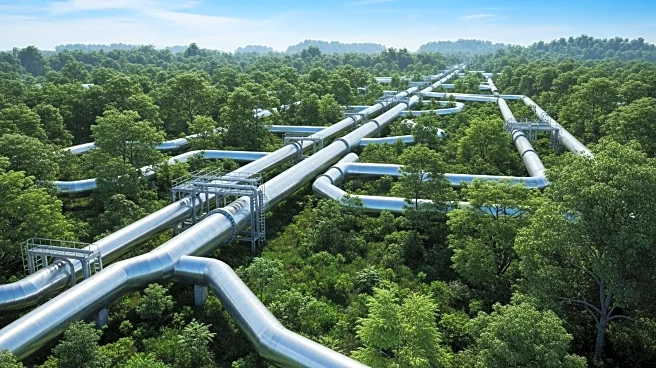What is the story about?
What's Happening?
The Panama Canal Authority (ACP) has initiated the concessionaire selection process for a new natural gas pipeline project. This project involves a 76-kilometre pipeline designed to connect maritime terminals on the Atlantic and Pacific coasts, with a transfer capacity of up to 2.5 million barrels per day. The pipeline is part of a broader interoceanic energy corridor aimed at enhancing Panama's competitiveness and meeting the growing global demand for energy products. The corridor will facilitate the transportation of propane, butane, and ethane, thereby optimizing canal capacity without additional water usage. The ACP has engaged over 45 representatives from global energy companies to shape the concession structure and ensure compliance with international safety and environmental standards.
Why It's Important?
The development of a natural gas pipeline through the Panama Canal represents a strategic move to bolster Panama's position in the global energy market. By improving the canal's efficiency and reducing vessel wait times, the project aims to secure the canal's long-term reliability and competitiveness. This initiative could attract significant investment from major energy companies, potentially boosting Panama's economy and creating new job opportunities. Additionally, the project aligns with global efforts to transition to cleaner energy sources, as natural gas is considered a more environmentally friendly alternative to other fossil fuels.
What's Next?
The next steps in the project include a prequalification stage and further dialogue with shortlisted companies, leading to the final selection of a concessionaire. The ACP will continue to engage with interested parties to refine the project's framework and ensure it meets international standards. As the project progresses, it is likely to attract attention from environmental groups and regulatory bodies, which may influence its development and implementation.















